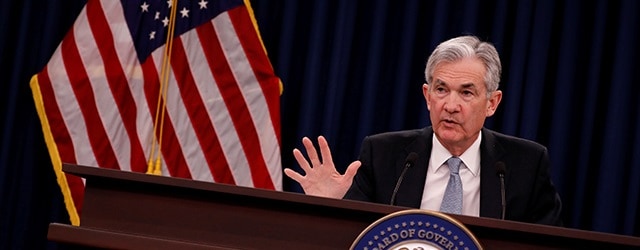The new chair of the U.S. Federal Reserve is steadily raising rates amid a more volatile economic environment.
Jerome Powell, the new chair of the US Federal Reserve, took office in early February under a spotlight as global markets study his leadership in the more volatile, inflationary and protectionist economic environment.

In its first meeting under his leadership, the Fed announced a 0.25 basis points rate increase—the sixth hike since December 2015—and changed its benchmark target rate to 1.5% to 1.75%. With the Fed recently stating that “the economic outlook has strengthened in recent months,” three more hikes are expected this year. Also, the Fed’s 2018 GDP growth forecast has gone up from 2.5% to 2.7%.
Powell has in the past expressed a view that Fed communication “should do more to emphasize the uncertainty that surrounds all economic forecasts, should downplay short-term tactical questions such as the timing of the next rate increase, and should focus the public’s attention instead on the considerations that go into making policy across the range of plausible paths for the economy.”
The nomination and confirmation of Powell indicate confidence in his nontraditional background as a lawyer and private-sector executive. Powell’s past statements on the need to relax certain banking regulations are aligned with recent efforts in Congress to reverse post-2008-crisis banking rules.
In his first testimony to Congress in late February, Powell focused on moderate wage growth, weak pace of productivity growth, and growing demand for US exports and manufacturing. Referring to inflation expectations and the economic outlook, Powell confirmed that “in this environment, we anticipate that inflation on a 12-month basis will move up this year and stabilize around the FOMC’s 2% objective over the medium term. Wages should increase at a faster pace as well.” The March Fed board statement confirmed a 2018 forecast of 1.9% for both core and headline inflation (excluding food and energy).
Another area of growing concern globally is the impact on financial markets of US protectionist measures. Powell’s strong views on the importance of open markets for the strength of the US economy may assuage some concerns of nervous market participants.



